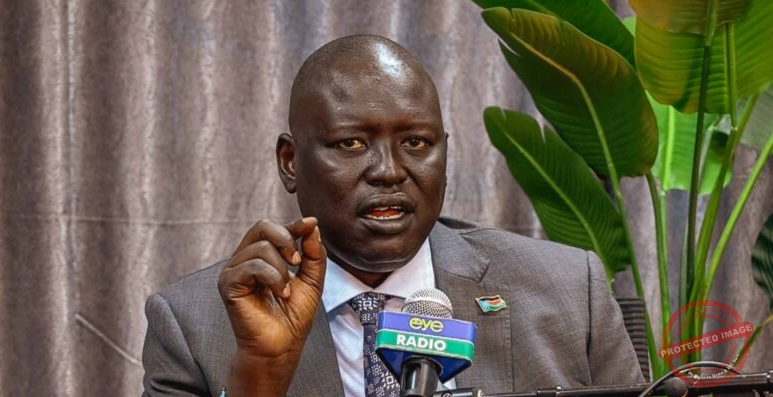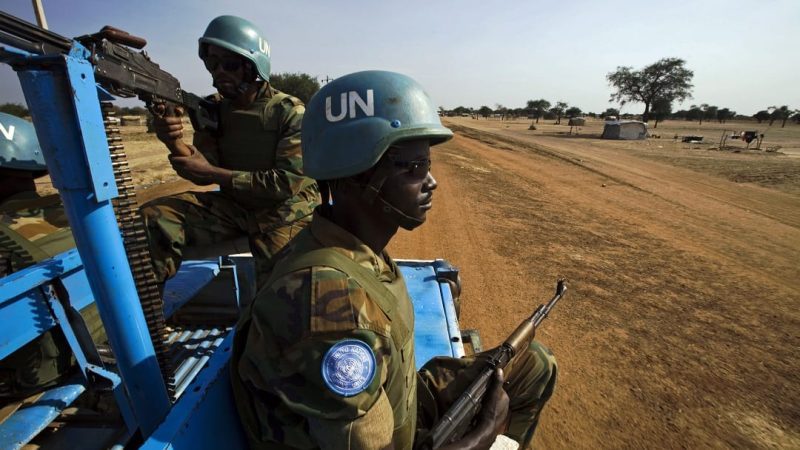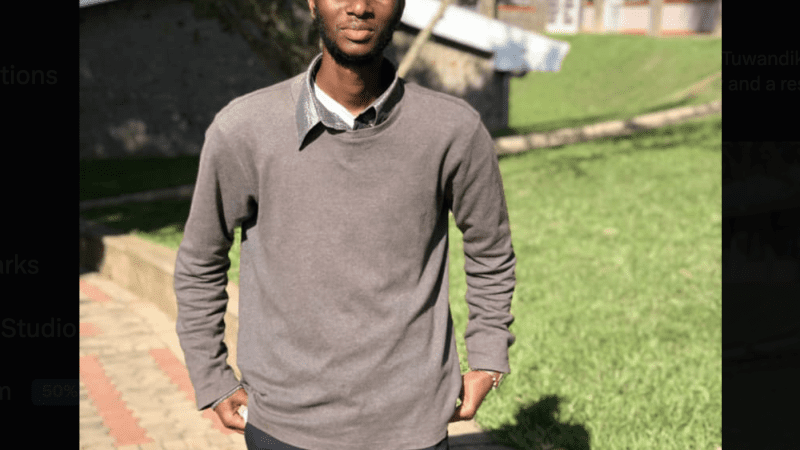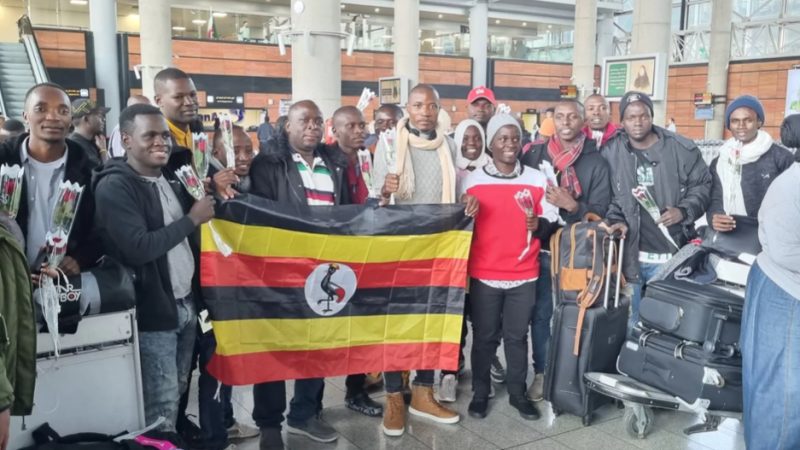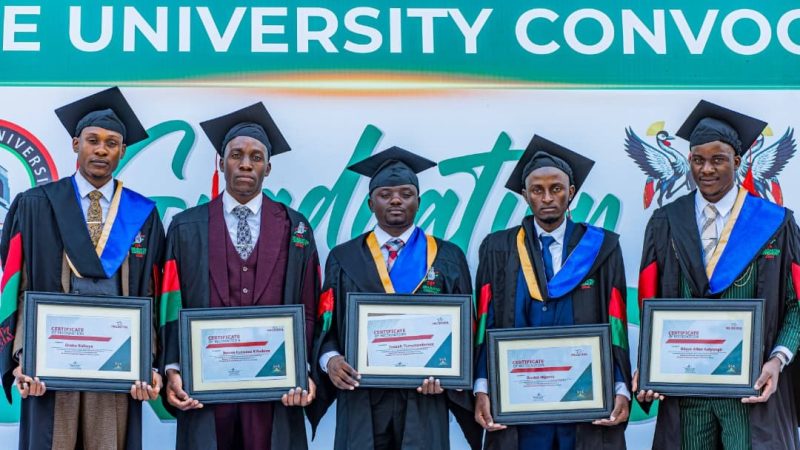

1. Uganda should let the 1995 Constitution’s safeguards for transition be tested.
2. The Constitution of Uganda should be a durable document.
3. Job security and tenure of public officials cannot be guaranteed under life presidency.
4. Uganda should establish a culture of constitutional rule by following the established rules.
5. The National Resistance Movement has potential leaders who can replace Y.K. Museveni.
6. Article 102(b) is the last existing safeguard that will ensure peaceful transition.
7. Museveni’s life presidency will exacerbate the simmering ethnic animosity in Uganda.
8. The amendment will impede generational transition in other spheres of Ugandan life.
9. Mr. Museveni’s legacy and positive achievements need to be secured and protected.
10. Amending Article 102(b) will stifle the independence of the judiciary as an institution.
11. The legalization of life presidency will require increased levels of coercion to enforce.
12. A free and independent media cannot thrive under unrestrained Executive tenure.
13. Businesses will operate in an even more constrained environment under a life president.
14. The employment structure within civil service will increasingly become top-heavy.
15. Under life presidency, patronage will become more entrenched rather than the exception.
16. If amended, long-term civil servants will have less incentive to be accountable to the public.
17. The proposal violates Uganda’s duties in the African Charter on Human & People’s Rights.
18. The proposed amendment is a threat to Uganda’s image as a bastion of regional stability.
19. “…if you want very active leaders, it is good to have the ones below 75.” Y. K. Museveni.
20. The proposed amendment will be a reversal of the democratic progress Uganda has made.
21. The amendment will dislocate the Constitution’s foundation of checks and balances.
22. The amendment, if enacted, will worsen elections-related apathy and despondency.
23. The amendment offends Uganda’s obligations under the United Nations Charter.
24. The proposed amendment is inconsistent with the democratic vision of the NDP II 2040.
25. Amending the Constitution would degrade the trust that Ugandans have in Parliament.
26. The proposed amendment violates the reasons advanced by Legal Notice No. 1 of 1986.
27. The partisan tendencies/perceptions of public institutions will be mitigated by transition.
28. The amendment doesn’t augur well with Mr. Y.K. Museveni’s promises to retire in 2006.
29. The amendment will degrade decency in and further commercialize electoral politics.
30. The amendment will further impede the realization of the objectives of multi-partyism.
31. We can as a country begin to respect the Rule of Law in observance rather than in violation.
32. Article 102(b) offers the NRM an opportunity to lead Uganda through peaceful transition.
33. Mr. Museveni can take the honour of being Uganda’s first resident former president.
34. Peaceful transition will lay the foundation for national reconciliation and truth-telling.
35. The amendment will exclude, rather than include more Ugandans from national leadership.
36. Peaceful transition will restore plummeting investor confidence and ratings in Uganda.
37. Religious institutions have warned against the proposed amendment, citing valid reasons.
38. In a region suffering civil strife, a politically uncertain Uganda doesn’t help matters.
39. Politics should not be seen as a do-or-die-affair—retirement should be encouraged.
40. The proposed amendment does not augur well with the promises of NRM’s 2016 Manifesto.
41. Peaceful transition will facilitate the realization of much-needed electoral reforms.
42. The domestic business community will be worst hit in the event of a upshot of civil strife.
43. The danger of personalizing the UPDF and other armed forces will be averted by transition.
44. Uganda should wean herself off reliance on donor assistance by building her democracy.
45. Uganda’s leadership should retire and pass over knowledge through writing and teaching.
46. The older generation needs to bequeath a better country to the younger generation.
47. A refugee crisis precipitated by civil strife in Uganda would upset the Great Lakes Region.
48. As a UN member, Uganda should uphold shared minimum democratic values.
49. The amendment does not augur well with Mr. Y.K. Museveni’s 1986 inaugural speech.
50. It is not safe for an individual to be the singular centre of power.
51. As a leader in peace-keeping and support operations, Uganda should uphold democracy.
52. Uganda’s wealth of jurisprudence risks being distorted by neo-patrimonial rule.
53. The proposed amendment places Uganda’s land question into danger.
54. The amendment if successful will embolden and fuel dictatorial tendencies across the world.
55. Academic freedom cannot thrive under life presidency.
56. The removal of the age limit will pave way for the total criminalization of dissent.
57. Under a life presidency, discussion about services becomes a luxury not an inalienable right.
58. As an outcome of regime longevity, arms proliferation and violent crime increases.
59. The removal of the age limit will threaten whatever there is that is left of public institutions.
60. The amendment will be synonymous with the personalization of the State of Uganda.
61. Amending Article 102 will be an indictment on NRM’s leadership development abilities.
62. Removing the age limit will jeopardize ongoing regional diplomacy for regional stability.
63. Amending Article 102 places the pressing issue of historical injustices into abeyance.
64. The amendment stands to derail all efforts at a National Dialogue for Peaceful Transition.
65. The amendment is a threat to the growth and development of the petroleum sector.
66. Amending the Article will entrench negative notions that others have about Uganda.
67. Article 102(b) is a crucial building block for institutionalized democracy in Uganda.
68. Uganda should maintain Article 102 because it creates political certainty and predictability.
69. It is not fitting to taint Gen. Museveni’s legacy in the same light as his predecessors.
70. The proposed amendment does not add positively to our democratic trajectory as a country.
71. The proposed amendment is an affront to the obligations of Uganda under the IGAD Treaty.
72. The proposed amendment is contravention of the NRM’s founding Ten Point Programme.
73. The proposed amendment will fundamentally alter the democratic spirit of the Constitution.
74. “The vigour is not as much after 75 years of age.” Y. K. Museveni.
75. As a notion, geism against Uganda’s youthful population will be fueled by the amendment.
76. The costs of patronage will increase and worsen the burden on the taxpayer.
77. If amended, the likelihood of recourse to violence to settle political questions is higher.
78. It is advisable that Uganda’s pool of leadership talent isn’t suffocated by life presidency.
79. The proposed amendment is a threat to Uganda’s image as a tourist destination.
80. Article 102 is a safeguard for creating and expanding civic and political space.
81. Article 102 needs to be respected so as to bolster into its fledgling multiparty dispensation.
82. Amending Article 102 contravenes our governance commitments under the EAC Protocol.
83. Uganda needs to develop and pursue a fresh and less-confrontational foreign policy.
84. ‘Districtization’ will continue and further divide Uganda along ethnicities.
85. Amending Article 102(b) will militate against the doctrine of Separation of Powers.
86. Under a fresh Administration, it will be easier to crackdown on corruption and impunity.
87. A new set of leaders will infuse fresh energy and ideas into the Ugandan polity.
88. Peaceful transition will improve Uganda’s position as a viable investment destination.
89. The Old Guard needs to be retired in a dignified rather than violent fashion.
90. Uganda should stop being the odd-man-out in the region on matters of peaceful transition.
91. Uganda needs a rejuvenated vision of the future that incorporates the digital revolution.
92. Peaceful transition from one leader to another will open a new page in Uganda’s politics.
93. It is in the NRM’s interest to secure its legacy and ensure that it outlives its Founders.
94. Institutional independence will be threatened by the legalization of life presidency.
95. The amendment will be wastage of the findings of the Odoki Constitutional Commission.
96. Uganda’s youthful population cannot be led and planned for by septua- and octogenarians.
97. Absence of limits to incumbency and power erodes institutional independence.
98. The Constitution of Uganda should not be amended for the benefit of an individual.
99. “The problem of Africa is leaders who want to overstay in power.” Y.K. Museveni.
100. Uganda should end the 54 year old spell of violent political transitions.
101. The legalization of life presidency is antithetical to the Rule of Law.
102. Uganda is a constitutional democracy, not a monarchy.
The authors are Kampala-based lawyers


